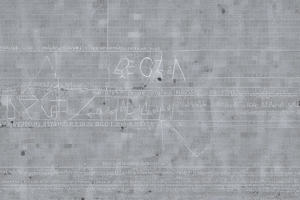Podcast
Questions and Answers
Which property states that for any numbers $a$ and $b$, if $a = b$, then replacing $a$ with $b$ in any expression yields an equivalent expression?
Which property states that for any numbers $a$ and $b$, if $a = b$, then replacing $a$ with $b$ in any expression yields an equivalent expression?
- Transitive property
- Reflexive property
- Substitution property (correct)
- Symmetry property
Which property allows for the rearrangement of numbers in an addition operation, ensuring that the order of numbers does not affect the sum?
Which property allows for the rearrangement of numbers in an addition operation, ensuring that the order of numbers does not affect the sum?
- Distributive property
- Closure property
- Associative property
- Commutative property (correct)
Which property asserts that an operation can be performed on both sides of an equation without changing the equality?
Which property asserts that an operation can be performed on both sides of an equation without changing the equality?
- Inverse property
- Identity property
- Addition and subtraction of the equality (correct)
- Equality property
Which property demonstrates that for any number $x$, the value of $x + 0$ equals $x$?
Which property demonstrates that for any number $x$, the value of $x + 0$ equals $x$?
Which property indicates that if $a < b$ and $b < c$, then $a < c$?
Which property indicates that if $a < b$ and $b < c$, then $a < c$?
Flashcards are hidden until you start studying
Study Notes
Properties of Operations in Mathematics
-
Closure Property: A set is closed under an operation if applying that operation to members of the set produces a member of the same set. For example, the set of integers is closed under addition.
-
Commutative Property: The order in which two numbers are added or multiplied does not affect the result. This applies to both addition (a + b = b + a) and multiplication (a × b = b × a).
-
Associative Property: The way in which numbers are grouped in addition or multiplication does not change their sum or product. For instance, (a + b) + c = a + (b + c) and (a × b) × c = a × (b × c).
-
Identity Property: There are specific identity elements for operations; for addition, the identity is 0 (a + 0 = a), and for multiplication, it is 1 (a × 1 = a).
-
Inverse Property: For every number, there exists an inverse. The additive inverse is -a for a (a + (-a) = 0), and the multiplicative inverse is 1/a for a (a × (1/a) = 1), provided a is not zero.
-
Distributive Property: This relates addition and multiplication, stating that a(b + c) = ab + ac, demonstrating how to distribute a single term across a sum.
Properties of Equality
-
Addition and Subtraction of Equality: If two amounts are equal, adding or subtracting the same value to both retains the equality (if a = b, then a + c = b + c and a - c = b - c).
-
Multiplication and Division of Equality: Multiplying or dividing two equal amounts by the same non-zero value preserves equality (if a = b, then a × c = b × c and a ÷ c = b ÷ c, where c ≠ 0).
-
Substitution Property: If two values are equal, one can be substituted for the other in any expression or equation.
-
Reflexive Property: Any quantity is equal to itself (a = a).
-
Symmetry Property: If one quantity equals a second quantity, then the second is equal to the first (if a = b, then b = a).
-
Transitive Property: If one quantity equals a second and the second equals a third, then the first equals the third (if a = b and b = c, then a = c).
Properties of Inequality
-
Addition and Subtraction of Inequality: Adding or subtracting the same amount on both sides of an inequality keeps it true (if a < b, then a + c < b + c).
-
Multiplication and Division of Inequality: Multiplying or dividing both sides of an inequality by a positive number keeps the inequality; however, if it's negative, the inequality sign flips (if a < b and c > 0, then ac < bc, but if c < 0, then ac > bc).
-
Trichotomy Property: For any real number, exactly one of the following is true: a < b, a = b, or a > b. This establishes a clear relationship between any two numbers.
Studying That Suits You
Use AI to generate personalized quizzes and flashcards to suit your learning preferences.




